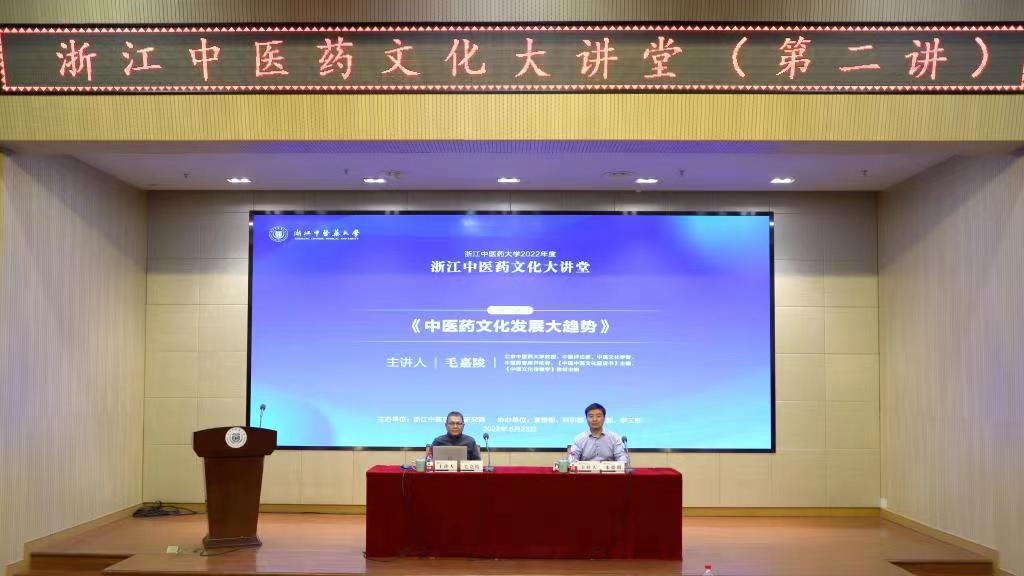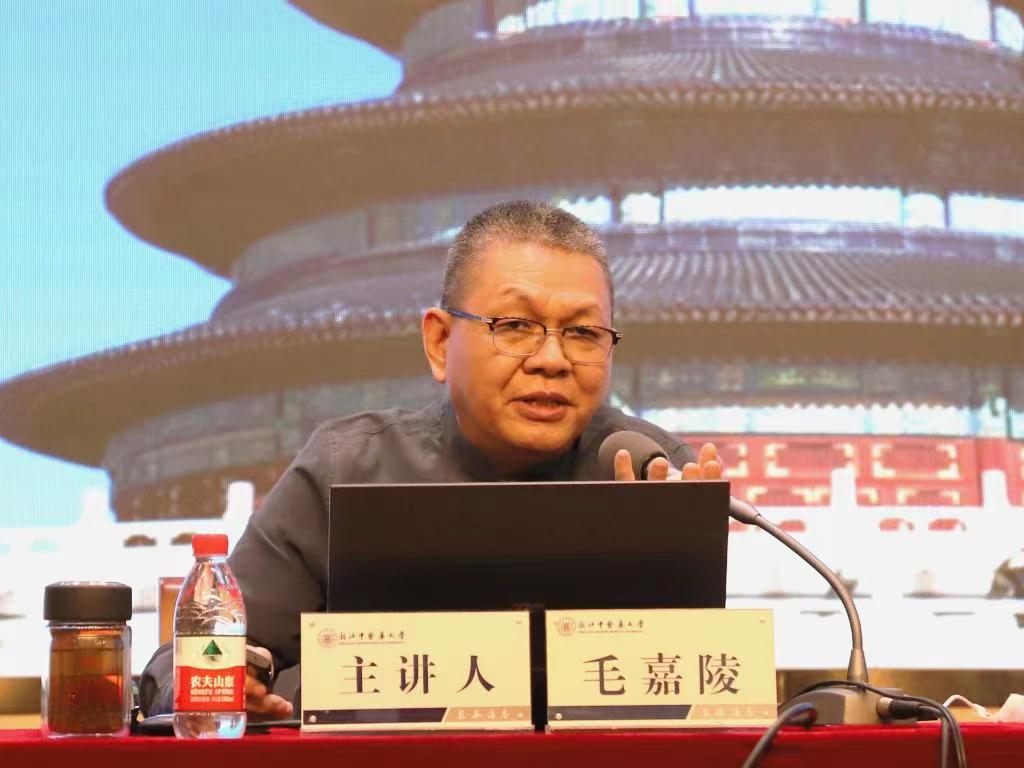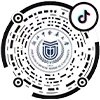On May 23, the second Zhejiang TCM Culture Lecture was held in the library lecture hall of Binwen Campus, Zhejiang Chinese Medical University. Prof. Mao Jialing from Beijing University of Chinese Medicine gave a lecture entitled "The Major Trend of TCM Culture Development."

According to Prof. Mao, TCM culture is an overview of Chinese people for the unique wisdom achievements and practices of life, health and disease, including cognitive thinking patterns, view of life and death, health concepts, doctor-patient relationships, way of treatment and health maintenance, lifestyles, drug prescriptions and operational systems, and other knowledge systems and medical service systems. Profoundly influenced by traditional Chinese culture, TCM culture advocates nature and harmony. Under the holistic view of "integration of human and nature", TCM pays special attention to the influence of environmental factors on human health and diseases. Therefore, instead of focusing on specific disease-causing factors and pathological results, TCM emphasizes improving the unhealthy internal environment, strengthening the body’s positive energy, and avoiding or eliminating environmental factors that may lead to disease-the actual "cause of the disease."

Prof. Mao elaborated on three cores of TCM culture: values, cognitive thinking mode and behavior standard. He also introduced the benefits of TCM culture, eight-principle differentiation, Xiang-thinking in TCM culture and lesions. He said it makes no sense to boast about the mysteriousness of TCM. Instead, the three cores of TCM culture should be clearly understood and comprehended. TCM culture is not blindly reciting the Four Books and Five Classics but colliding the spark of thought and wisdom, striving hard and continuously enhancing the right to discourse. He also defined TCM from the perspective of the three culture cores: TCM, as a medical knowledge system, takes the entirety and Xiang-information as the basis for cognitive thinking, natural resources as the control means, and balance and harmony as the purpose.
 International Relations Office
International Relations Office International Education College
International Education College








